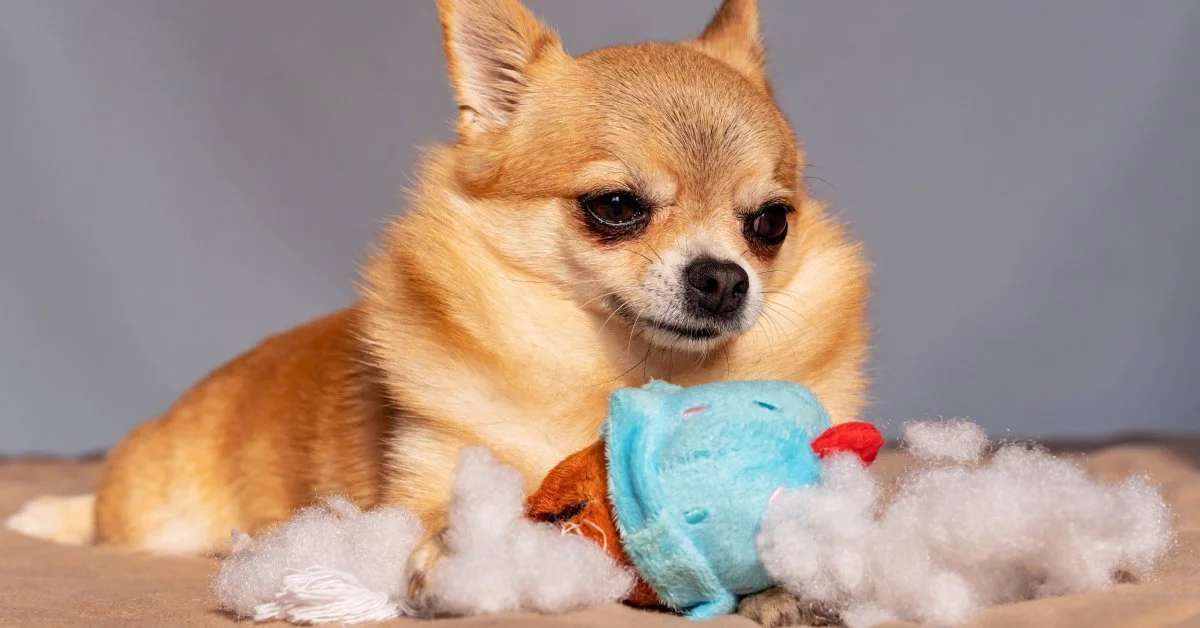How To Tell if Your Pet Has Ingested a Foreign Body
Whether we like it or not, our pets will find a way to eat something that they shouldn’t. It can be something as simple as their own toys to something more bizarre like socks and coins. Curious cats and dogs often test the waters of whether something is food or not by chowing down on it. However, these non-edible items can cause serious health problems for our furry friends. Recognizing the early warning signs can make a big difference between a simple procedure and a life-threatening emergency.
If you’re wondering how to tell if your pet has ingested a foreign body, we’re here to help. The Complete Pet Animal Hospital can provide you with a list of what to watch out for, what symptoms to pay attention to, and how to consult veterinary assistance to deal with these serious complications.
Common Objects Pets Swallow
The items that your pet are likely to swallow may vary depending on if you have a cat or dog and what size, age, or breed of animal you have. Many medium and large size dogs swallow larger objects such as tennis balls, rawhide chews, corn cobs, or clothing items like socks. They have more indiscriminate eating habits that entice them to swallow anything that smells good and fits in their mouth.
Cats are usually more selective but can still swallow things that can cause problems. A few of the more common culprits are yarn, rubber bands, and hair ties. Cats also have grooming habits that can lead to dangerously excessive hairball formations, which may require further intervention. While you’re never likely to fully remove these swallow-risks, identifying what items are likely culprits can help you make some adjustments and keep things safer.
Immediate Physical Symptoms
Unless you actively see them swallow something, it can be tricky to tell if you pet ingests a foreign object. Thankfully, you can watch out for a few common signs. One of the most common symptoms is vomiting. While there are many reasons your pet may throw up, you can try to pay attention to the timing and frequency of these episodes. Persistent vomiting that occurs shortly after eating or drinking often suggests an obstruction in the digestive tract.
Gagging and retching without producing vomit might showcase an object in their throat or upper digestive tract. Watch for if your pet is extending their neck, making choking sounds, and trying to cough something up to no avail.
Another symptom to watch for is if your pet has difficulty swallowing or a reluctance to eat or drink. Your pet may approach their food bowl but then walk away without eating, or they may take food into their mouth but struggle to swallow it.
Changes in Bathroom Habits
Another common sign that your pet may have eaten something they shouldn’t have is if they struggle to use the bathroom. Straining to defecate could mean the object is partially blocking their intestines. Your pet may assume the position to defecate but produce little or nothing, or they may cry out in pain during attempts to have a bowel movement.
If your dog goes more than 24 hours without defecating or if your cat goes more than 48 hours, you should seek veterinary attention. Your pet could have a serious blockage that’s preventing normal waste elimination.
Behavioral Warning Signs
While it can be hard to tell if your pet has ingested a foreign body, you might be able to tell from their behavioral signs. Some pets may experience lethargy or depression as their body struggles to deal with the obstruction. Your normally active pet may seem unusually quiet, reluctant to play, or disinterested in activities they usually enjoy.
If your pet struggles with normal physical activity and experiences a loss of appetite that lasts longer than 24 hours, that should raise some concerns, especially if your pet normally eats with eagerness. Complete refusal to eat or drink requires immediate veterinary evaluation.
When Symptoms Require Emergency Care
If your cat or dog is having trouble breathing or has sudden respiratory distress, you should seek immediate veterinary attention. Foreign objects in the throat or trachea can turn life-threatening very quickly if they block off the flow of oxygen.
Repeated, forceful vomiting that produces no results often indicates a complete obstruction. This symptom typically worsens over time and can lead to dehydration and electrolyte imbalances.
Visible distress, such as crying, whimpering, or obvious pain when moving or experiencing physical touch is a common sign that your pet needs professional evaluation and treatment.
Taking Action When You Suspect Ingestion
If you suspect that your pet has ingested a foreign object, you should reach out to your veterinarian as soon as possible. Provide as many details as you can about what you think happened, what symptoms your pet is displaying, and how long this has been going on. The more information you can provide, the better your vet can figure out the urgency of the situation and prepare for your pet’s arrival.
Having your vet’s contact information readily available and knowing the fastest, most efficient route to get to the nearest animal hospital can make a big difference. Quick action often determines the outcome in foreign body cases.
Protecting Your Pet's Future Health
Even after removing the foreign body, these incidents may leave lasting effects on your pet’s digestive system. Understanding the warning signs and responding quickly helps ensure the best possible outcome for your beloved companion.
Try to conduct regular veterinary checkups and discuss foreign body prevention options with your vet. A trained specialist can try and offer specific advice based on your individual pet’s needs, preferences, and habits.
If you're in need of emergency pet care or routine veterinary services, The Complete Pet Animal Hospital is here to provide compassionate, expert care for your furry family members. Contact us today to ensure your pet receives the dedicated attention they deserve.



